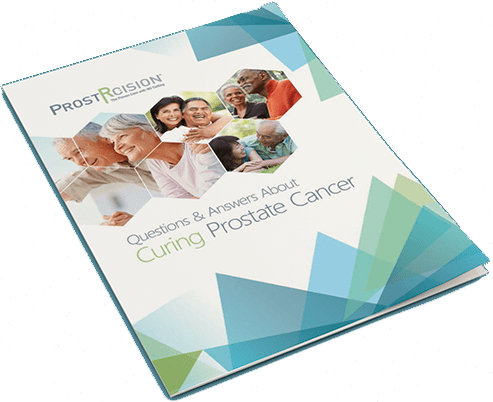While it’s true that prostate cancer is not usually found in men under the age of 40 and is typically detected in men over 60, it’s important for all men to know the signs and symptoms.
But because prostate cancer is typically slow-growing, there may be little or no physical signs. That’s why it is incredibly important to have routine prostate screenings starting at age 50 for most men. The prostate cancer screening tests can identify possible cancer development much sooner than symptoms appear for most men. Talk to your primary care physician about the right time to start prostate cancer screening based on your individual risk factors.
Unfortunately, some men experience the first symptom of prostate cancer after it has already grown outside the prostate. Bone pain, caused by prostate cancer cells that have developed in the spine, hips or other bones, can be the first symptom of prostate cancer that is noticed. This is considered a late-stage symptom that is harder to treat. To avoid late-stage detection, it’s critical to get your prostate cancer screening done regularly.
Other prostate cancer symptoms may include:
Sudden urge to urinate
Frequent need to urinate, especially at night
Difficulty starting urination and/or straining to empty bladder
Blood in the urine or in semen
Pain in the back, hips, or pelvis that doesn’t go away
Recent trouble getting an erection (erectile dysfunction or ED)
Painful ejaculation
Sometimes people assume that a weak or slow urine stream is one of the most tell-tale prostate cancer signs. However, prostate cancer rarely causes any urine symptoms, such as a weak, slow stream. The urinary symptoms are normally caused by compression (squeezing) of the urethra due to an enlarged prostate, called Benign Prostatic Hyperplasia (BPH).
The more common signs of prostate cancer can sometimes be linked to other health issues. For instance, a rising PSA may be a sign of prostate cancer; however, a rising PSA may also be caused by BPH (an enlarged prostate).
Additionally, erectile dysfunction (another potential sign of prostate cancer) may also be connected to lifestyle factors such as smoking, heart conditions, diabetes, or natural aging.
You should never assume that symptoms are linked to other health problems. If you notice any changes in your body, you should always inform your doctor right away. Proper screening will begin the process of identifying the cause for rising PSA levels and the best course of action moving forward.
Your best defense against prostate cancer is the PSA blood test which can lead to early detection, a critical part of being successfully treated. Recommendations for initiating testing for an elevated PSA vary based on age, history, and ethnicity. Current recommendations to start PSA testing include:
All men over the age of 50
African American men 45 years old or older
Men with a family history of prostate cancer at age 40
While PSA level testing is one option for screening, another screening is commonly performed at the same appointment. A digital rectal exam is conducted by your physician or other trained personnel so they can touch the prostate gland and identify any nodules, lumps, or hardness in the prostate. If anything is detected during this exam, then your doctor will suggest further testing such as a biopsy.
If you have been recently diagnosed with prostate cancer, it’s critical to personally research prostate cancer treatment options to make an informed decision that is best for you and your family. And, with few exceptions, your first treatment method gives you the best chance for success. Request more information about prostate cancer treatment options or speak with a care team member who can help you decide if an appointment with a radiation oncologist is the next best step for you.

Make an informed prostate cancer treatment decision. Our 40-page, comprehensive guidebook provides answers to our most frequently asked questions from men diagnosed with prostate cancer, and compares various treatment methods, cure rates and side effects. Our team can also connect you with one of our oncologists at no cost.
Quickly and efficiently build the materials you need to support your inbound marketing strategy. Drag and drop building blocks including testimonials, forms, calls-to-action, and more.